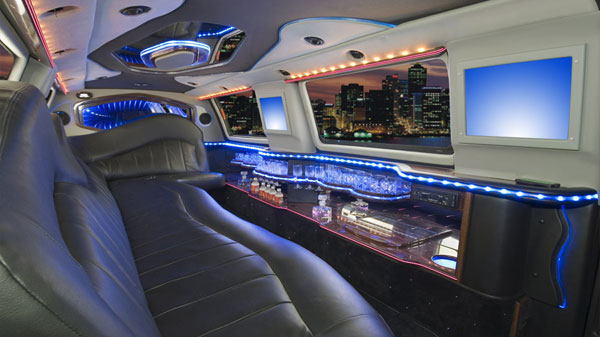By Rupert Nuttle

The B.C. government is screening drivers and keeping a close eye on “party buses” amid growing concern over the industry’s handling of public safety and underage drinking.
Companies operating stretch SUVs and limo buses – which are popular among students celebrating graduation, and as a classy way to get from Vancouver to Whistler – were subjected to increased regulation from the Ministry of Transportation last spring. Companies operating under the old regulations were made to re-apply for updated licences.
According to documents obtained under the B.C. freedom-of-information law, the new rules were also accompanied by an emphasis on knowing where the vehicles operate and a renewed scrutiny of the companies themselves.
“The (ministry) has access to information on all vehicles operating limousine style services, and knows exactly where the vehicles are operating,” the documents read. They go on to explain that this information “will assist with auditing and other enforcement measures.”
The party bus industry is regulated by the passenger transportation department of the Ministry of Transportation. Kristin Vanderkuip, the department’s director, says she uses a specific penalty framework to determine what enforcement measures to take when operators break the rules.
If a party bus operator is caught outside their predetermined boundaries, for instance, they’re fined $500. Other infractions include leasing a vehicle’s plates for a fee (a $1,000 fine), and smoking while driving ($100).
According to its website, the department also conducts “random” audits of party bus companies on an annual basis. If an operator isn’t up to snuff, they are given the chance to make the necessary changes. In more extreme cases, though, the ministry will notify the Passenger Transportation Board, an independent tribunal that also monitors the industry.
Last year, the single-vehicle company called New Classic Limousine & Coach Services was forced out of business when it was discovered that then-president, owner and sole operator, Hardyal Singh Dhanoa, had been convicted of three criminal offences while operating his party bus service. These included dangerous driving, possession of a weapon, and assault with a weapon, according to a document on the Passenger Transportation Board’s website.
Vanderkuip’s department brought this information to the attention of the board last June, and the board found that Dhanoa had failed to acknowledge his criminal record when applying for special licensing under the new regulations. They then issued a directive to cancel the licence, effectively forcing New Classic to shut down. (The company still has a website and an active phone number, but refused to comment.)
Ranji Virk, the manager of Time Limo, a Vancouver company, says that single-vehicle operators like New Classic are among those most affected by the province’s new regulations. Virk’s company has a total fleet of 20 vehicles, including vans, SUVs, stretch limousines and 3 party buses. He says the new rules have had very little impact on his business.
But he also says he’s not sure how effective the changes have actually been, and believes the department isn’t diligent enough. “They’re not really tracking, I can tell you right now,” he says. As for audits from the department, Time Limo hasn’t seen one in “many years.”
The efficacy of the new regulations has come into question lately, after a 23-year-old woman died when she fell out of a moving party bus in downtown Vancouver, just over two months ago.
According to Virk, that incident points to an issue that the department isn’t addressing: where the party buses come from. Many of the vehicles operating in Canada are modified shuttle buses manufactured in the U.S. The vehicles don’t always comply with Canadian safety standards, says Virk, but they manage to get across the border anyways.
“Those vehicles are not allowed in Canada, but those vehicles are in Canada,” he says. “They don’t track that.”
PartyBuses-Nuttle-briefing-notes



